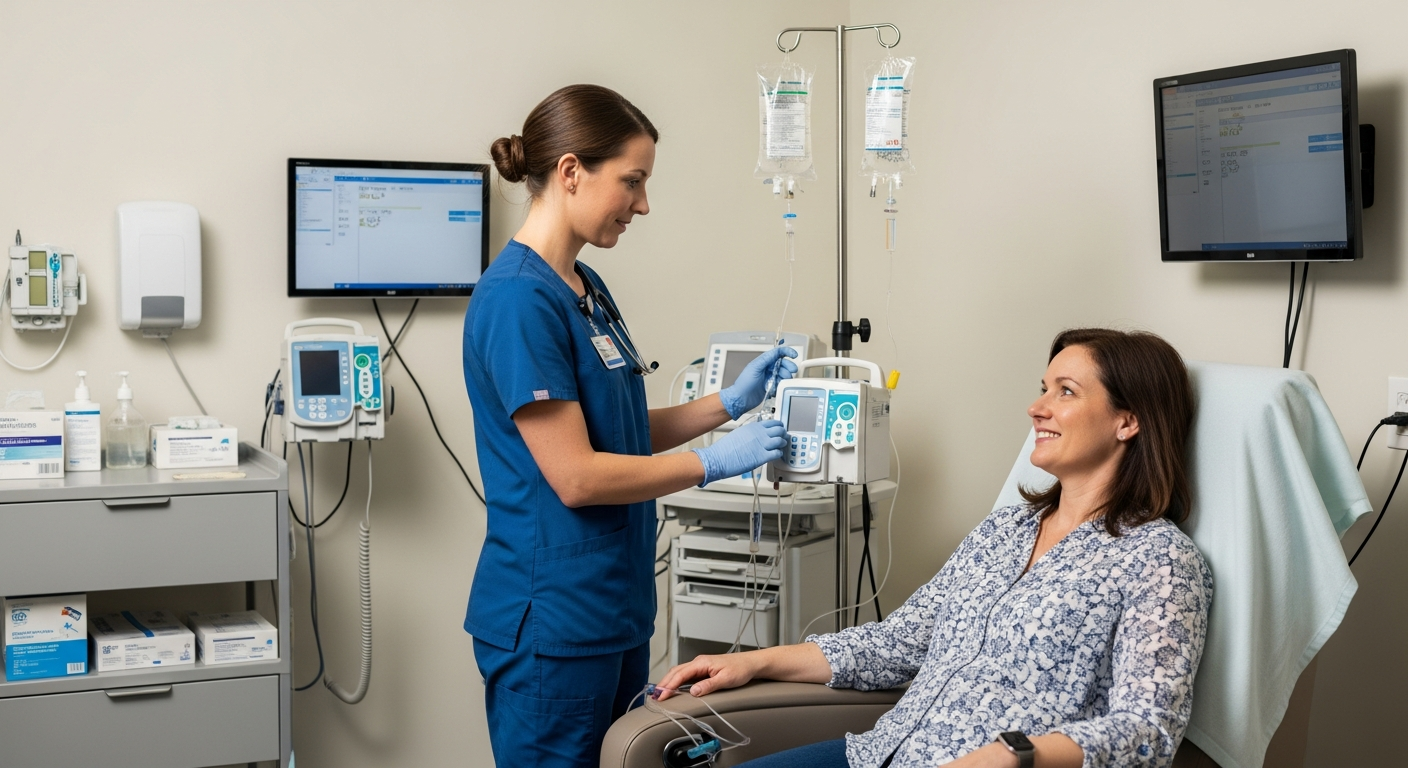Enhancing Quality of Life Through Dietary Choices: Your Comprehensive Guide to a Parkinson’s Disease Diet for 2025
Living with Parkinson's disease presents unique challenges, but understanding nutritional foundations can significantly impact symptom management and overall wellness. Diet plays a crucial role in supporting brain health, managing medication effectiveness, and maintaining quality of life for individuals with Parkinson's disease. While nutrition cannot cure the condition, strategic dietary choices can help optimize treatment outcomes and provide essential support for daily functioning.

What Are the Core Nutritional Foundations in Parkinson’s Disease?
Understanding nutritional foundations in Parkinson’s disease begins with recognizing how the condition affects nutrient absorption and metabolism. Parkinson’s impacts the digestive system through slower gastric emptying and reduced gut motility, which can lead to constipation and nutrient deficiencies. The brain’s reduced dopamine production also affects appetite regulation and eating behaviors.
Protein timing becomes particularly important since amino acids from dietary protein can compete with levodopa medication for absorption in the brain. Many neurologists recommend spacing protein intake throughout the day or consuming the majority of protein at dinner to optimize medication effectiveness during daytime hours when mobility is most needed.
Which Essential Nutrients Support Parkinson’s Wellness Most Effectively?
Essential nutrients to support Parkinson’s wellness include several key components that address both neurological function and common deficiencies. Antioxidants like vitamins C and E help combat oxidative stress, which contributes to neuronal damage in Parkinson’s disease. Foods rich in these vitamins include citrus fruits, berries, nuts, and leafy green vegetables.
B-vitamins, particularly B6, B12, and folate, support neurological function and may help manage homocysteine levels, which can be elevated in people taking levodopa. Omega-3 fatty acids from fish, walnuts, and flaxseeds provide anti-inflammatory benefits that may support brain health. Fiber-rich foods become essential for managing the constipation commonly experienced with Parkinson’s disease.
How Can Diet Modifications Help Manage Parkinson’s Symptoms?
Strategies for managing symptoms with diet modifications focus on addressing specific challenges that arise with Parkinson’s disease. Swallowing difficulties can be managed by adjusting food textures, incorporating smoothies, and ensuring adequate hydration. Smaller, more frequent meals can help with digestion issues and prevent the fatigue that often follows large meals.
Reducing refined sugars and processed foods may help stabilize energy levels throughout the day. Some individuals find that limiting dairy products improves medication absorption, though this should be discussed with healthcare providers to ensure adequate calcium intake. Staying hydrated becomes particularly important as dehydration can worsen symptoms like dizziness and confusion.
What Should You Include in Meal Planning for Parkinson’s Management?
Exploring meal planning for Parkinson’s management requires balancing nutritional needs with practical considerations like tremors and mobility challenges. Preparing meals in advance during times when symptoms are well-controlled can ensure consistent nutrition throughout the week. Batch cooking soups, stews, and casseroles provides easy-to-consume options that require minimal preparation during challenging periods.
Incorporating foods that are easy to handle and eat becomes important for maintaining independence. Finger foods, pre-cut vegetables, and smoothie-friendly ingredients can simplify daily nutrition. Planning protein distribution to optimize medication timing may involve lighter protein breakfasts and lunches with a protein-rich dinner, though individual needs vary significantly.
What Do Recent Studies Reveal About Diet and Parkinson’s Disease?
Evaluating emerging dietary research and expert insights reveals promising developments in nutritional approaches to Parkinson’s management. The Mediterranean diet has shown particular promise in studies, with its emphasis on olive oil, fish, fruits, vegetables, and whole grains potentially offering neuroprotective benefits. Research suggests this eating pattern may help slow cognitive decline and support overall brain health.
Recent studies have also explored the gut-brain connection in Parkinson’s disease, investigating how probiotics and fermented foods might influence symptoms through the microbiome. Green tea consumption has been associated with reduced Parkinson’s risk in some populations, though more research is needed to establish definitive recommendations. Curcumin and other anti-inflammatory compounds continue to be studied for their potential therapeutic benefits.
How Much Does Parkinson’s-Focused Nutrition Support Cost?
Understanding the financial aspects of implementing a Parkinson’s-friendly diet helps families plan effectively. While specialized nutrition products and consultations involve costs, many beneficial dietary changes use affordable, accessible ingredients. Working with registered dietitians who specialize in neurological conditions typically costs between $100-200 per session, with initial consultations often higher.
| Service Type | Provider Examples | Cost Estimation |
|---|---|---|
| Dietitian Consultation | Local Hospitals, Private Practice | $100-250 per session |
| Meal Delivery Services | Silver Cuisine, Mom’s Meals | $60-120 per week |
| Nutritional Supplements | Pharmacy, Online Retailers | $30-100 per month |
| Specialized Food Products | Health Food Stores | $20-50 weekly increase |
Prices, rates, or cost estimates mentioned in this article are based on the latest available information but may change over time. Independent research is advised before making financial decisions.
Conclusion
A well-planned diet can serve as a valuable complement to medical treatment for Parkinson’s disease, supporting symptom management and overall quality of life. By focusing on nutrient-dense foods, appropriate protein timing, and addressing individual challenges like swallowing difficulties or medication interactions, dietary strategies can make a meaningful difference in daily functioning. While nutritional approaches cannot replace medical treatment, they offer an accessible way for individuals and families to take an active role in managing Parkinson’s disease through informed food choices and meal planning strategies.
This article is for informational purposes only and should not be considered medical advice. Please consult a qualified healthcare professional for personalized guidance and treatment.




